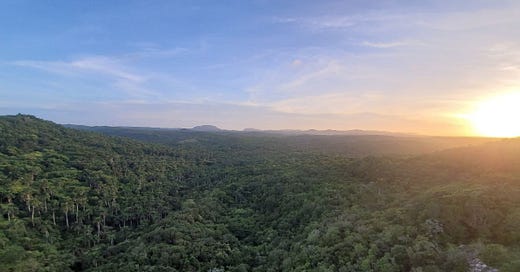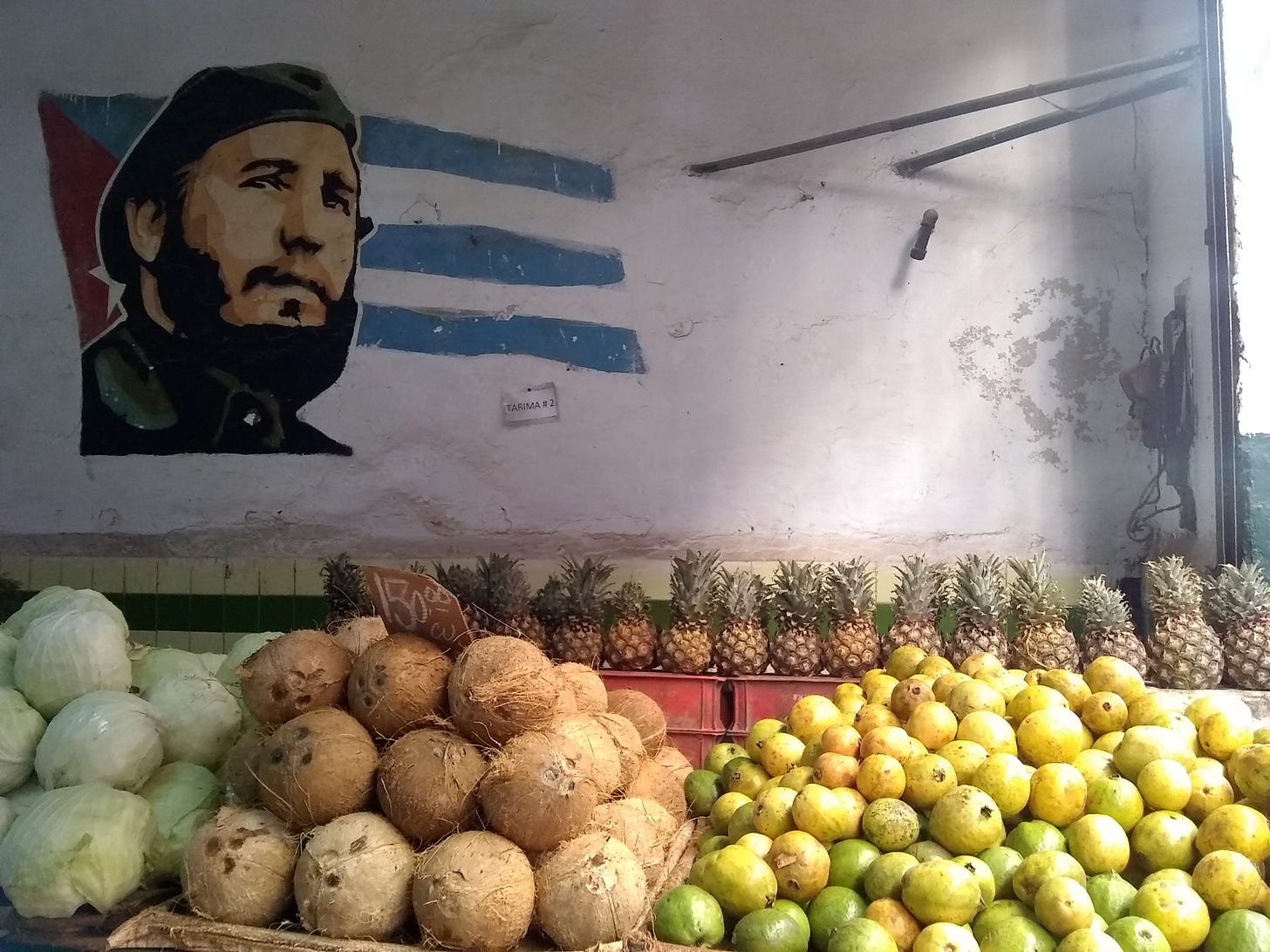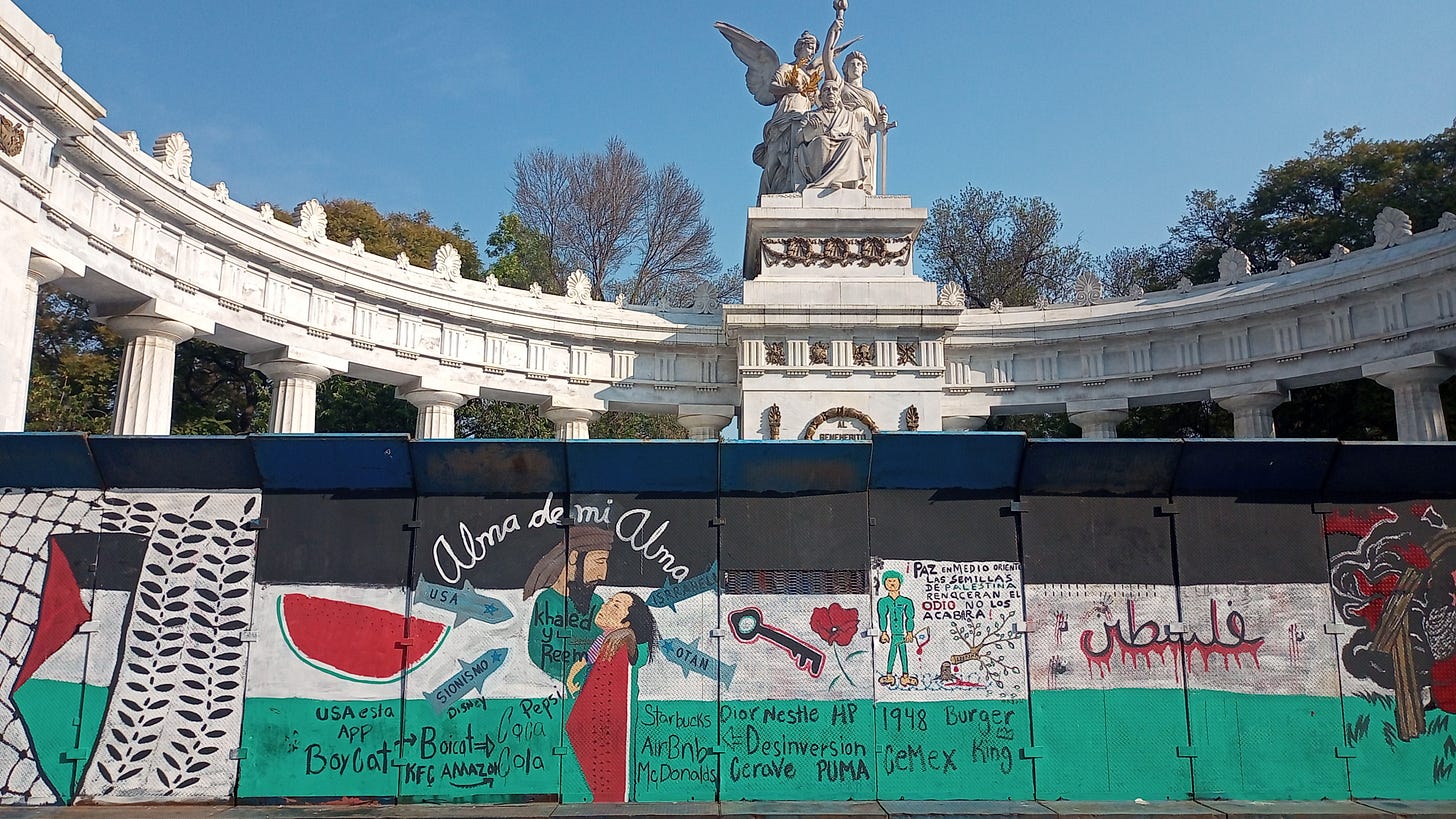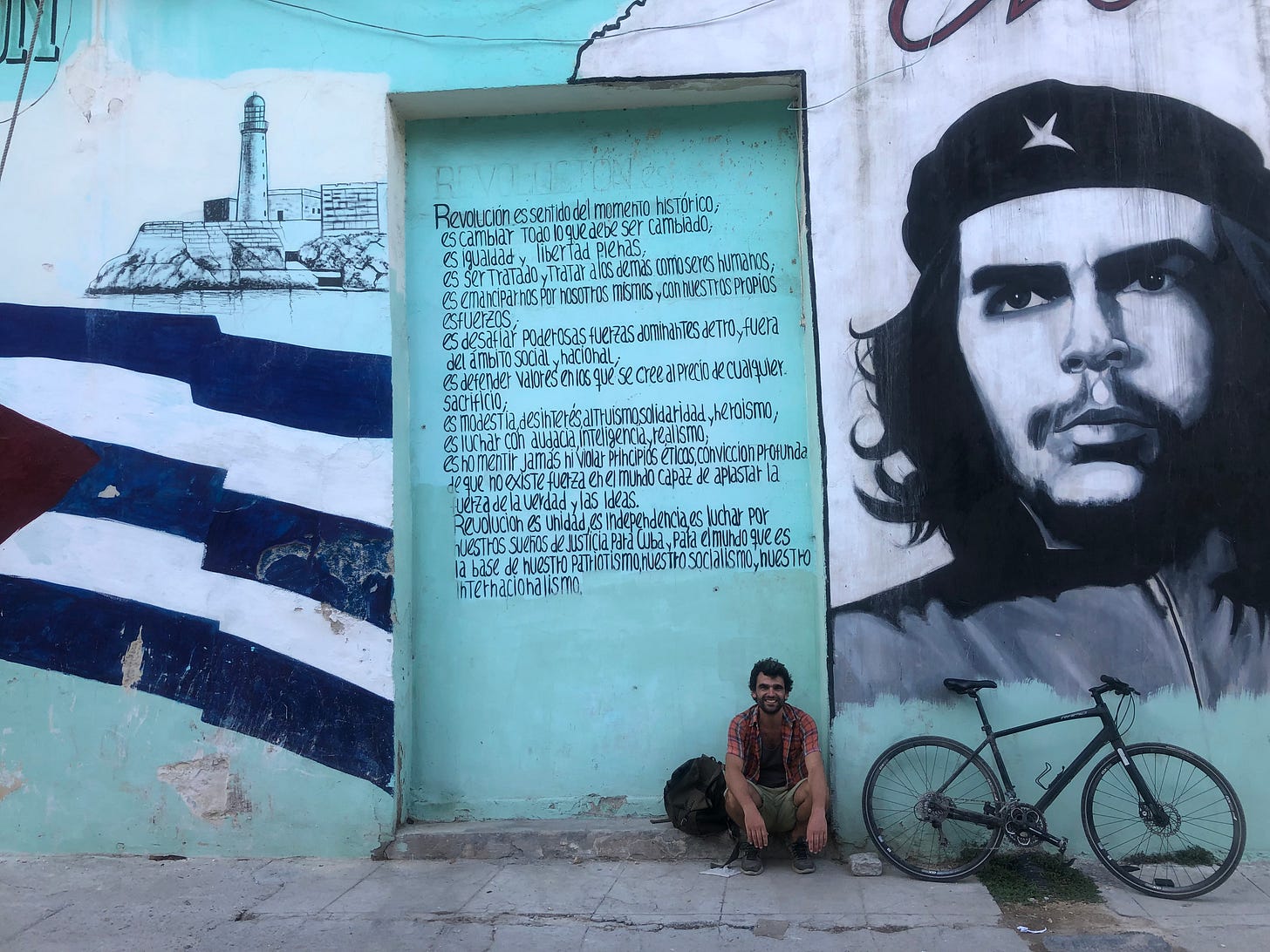As with all Latin America, there is too much to record. Even a book feels like it will scarcely cover it, but really is the best and only place to make the attempt. There was never a moment when the enormity of the continent wasn't impressing itself upon me, and that proved no less true in Cuba than it had all along my route.
I went anticipating a small island and soon realised it would still provide some 1500km to ride, through jungle and beneath mountains; always slightly amazed I was passing places that Castro and Guevara and their rebel army had garrisoned and liberated during the Cuban Revolution of the 1950s, never the least amazed that such epic terrain — as it always has, everywhere from Vietnam to Lebanon — provided the setting for the defeat of US-backed puppets opposed by a well-organised guerrilla army of local patriots.
Guevara did not visit Cuba during the journey that formed his Motorcycle Diaries. I went largely because— in a project that sought to revisit that route but also test the hypothesis of whether Latin America is really turning socialist — it seemed in some ways the best place to close out a journey looking at the trajectory of socialism in Latin America. For all that Cuba struggles against the cruel and illegal US embargo placed upon it, for all that its government has to make steps and so also at times makes missteps under this duress, nevertheless in 1959 the US puppet dictator was toppled and thus the Cuban Revolution represents a victory. And it is, without fail, always vital to remember our victories.
It was also clear that many of the problems Cuba now faces — quite apart from those that are the phantoms always created by US & European propagandists working against countries they seek to topple — are a product of the Revolution’s success; a Caribbean island got free and in so doing became a part of world affairs, also achieving standards of living, education and aspiration beyond that of most other Caribbean islands.
For now, however, I cannot write of all that happened in Cuba, some of which informed and disrupted the entirety of the yearlong trip that came before it. If truth be told, the multitude of mediums and expectations that contribute to modern writing are themselves at times awkward to navigate. The days of a serialised novel released in a newspaper are of course behind us. So too the time when a book itself would simply be released into a world where the writer was without other mediums.
The steady drip of information through different online platforms— each with different audiences and norms— is a challenge for today’s writer to balance, and so too an implicit challenge to the medium of the book which really is, for me and as it always has been, the guiding star I work by and most believe in. I do value and enjoy the support, and so too the vicarious company, that social media platforms can provide. Their immediacy too can of course be helpful, every bit as much as they can hinder our accustomisation with the delayed gratification that so much good and so much progress rests on. I would like to write essays now, or maybe even share photos and explain all that happened, but more than anything, really, I want those who read the book to discover what happened on page 314, without anticipating it throughout. Reading, it feels, is probably best where it comes upon the reader as transformatively as it did the one recording it.
In many respects, and with this in mind, I welcome the schisming of social media between different platforms and audiences— each also with their different oligarchic owners and censors— because the lack of synchronisation between them, and authenticity overall, asserts the primacy of non-digital communication; be it the public or the page. This absence of genuine usability asserts the value of something like a book above an algorithmically-generated provision of what we already like or — increasingly — what a censor demands.
But forgive me, for I digress. My Latin America journey finished finally in Mexico City, to which I went from Cuba; a reversal of a key journey of Guevara, who was living in Mexico City when he learned of a developing revolution in Cuba. Mexico City, or CDMX, today also provides one of the best examples of what I found in Latin America; a fine and proud culture withstanding an overmighty northern neighbour built atop genocide at home and the genocide it has always been committed to rolling out abroad, whether in Palestine or in Latin America.
Appropriately then, the walls of CDMX were also adorned with murals and graffiti in support of Palestine and its liberation, though emerging trends in migration also point at a new world unavoidably coming. A migration pattern that has always seen Mexicans moving towards the US and its wages is beginning to find its inverse in US citizens, especially the young, moving towards Mexico for a greater quality of life; whether that quality is measured in food, social cohesion, cost of living, health outcomes or a combination of all of it. At some point, both North America and Europe will have to settle this debt to its future generations or see them either decamp or decline.
Whether or not the neoliberal political model of North America and Europe is up to such foresight is another matter. As always I am very conscious that the book I now begin to write will have to be future-proofed against a world that will doubtless be different again in a year’s time. I often find that rooting my writing in the history that is how I read the world, or the present-day interactions— good and bad, light and arduous— the roadside blesses me with so abundantly, has always achieved this fairly well, and I hope the formula can hold true once again.
I sign-off for now to delve back into my notepads, though I’ll keep you posted on basic moves, progress, or ideas that seem worth sharing. If you want company from my pen in the next year and until The Cycle Diaries is on the shelves, my completed books are of course out there and readily available at bookshops, or through this link, which pays me a small commission and supports local bookshops.
The Palestine title — Fifty Miles Wide— is in fact fully available, despite the system’s current claim to the contrary in that link. Mysteriously enough (or not), only my Palestine book has recently been suffering glitches in its availability, though I am assured that they are soon to be resolved.
With that I leave you, tired but grateful from 15,000km of Latin America, and just about ready to write the next one.








"At some point, both North America and Europe will have to settle this debt to its future generations or see them either decamp or decline.
Whether or not the neoliberal political model of North America and Europe is up to such foresight is another matter." nice
I love this and can’t wait to read more- what a journey